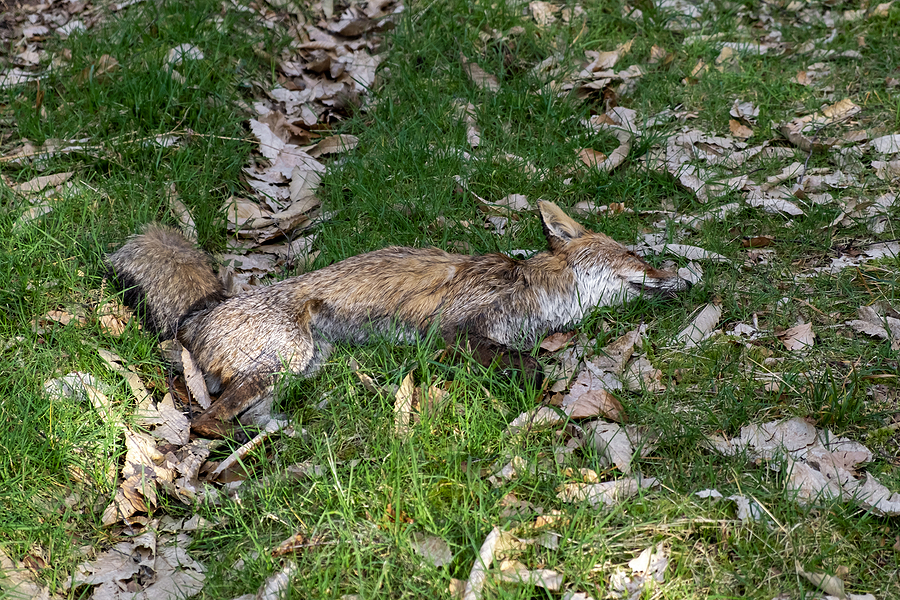Finding a dead animal in your yard can be an unpleasant experience. Not only is it unsightly, but you may also feel uneasy about the potential health risks associated with a carcass left to rot in your garden space. Fortunately, there are steps you can take to safely and quickly remove the animal from your property. Whether it’s a small rodent or larger mammal like a deer, this guide will provide you with tips for getting rid of the deceased creature as well as advice on preventing future incidents. Continue reading to learn more about dead animal removal and how to keep wildlife away from your home!

Found a Dead Animal in the Backyard? Consider Your Safety First
Dead animal carcasses can pose significant hazards to both human beings and animals. The presence of a dead animal can attract parasites such as fleas, ticks and bacteria that cause illnesses in humans. The carcasses can also provide food sources for predators who might prey on pets and livestock. Such predators vary depending on the region, but here in Tennessee, they can include Black bears, coyotes, bobcats, foxes, hawks, and even venomous snakes like Timber Rattlesnakes and Copperheads. These dangers and hazards are not always immediately apparent, so it is important to approach dead animal carcasses with caution.
People should wear gloves and protective clothing when handling the remains and dispose of them safely to avoid the spread of diseases. Dead animal carcasses should be reported to the authorities for proper removal. It’s the best way to guarantee a safe environment for both humans and animals.
Your Options for Dead Animal Removal
■ Contact a Wildlife Removal Service
When you first find a dead animal in your yard, it’s important to assess the situation and determine if the carcass requires immediate removal. If there is no sign of decay or decomposition, then contact a local Nashville wildlife removal company for dead animal removal service. These licensed professionals can safely dispose of the animal using proper security protocols and will also be able to identify its species so that you know whether or not it could pose any health risks.
■ Bury the Carcass
If the animal has been deceased for some time, then you may need to consider other options such as burying the body yourself or calling your local animal control department for assistance. Before taking on either of these tasks, make sure you are well-equipped with the necessary protective gear including gloves, boots, coveralls, and face masks. Once the carcass has been safely disposed of, it’s important to take steps to prevent future wildlife deaths on your property.
■ Animal Proof Your Property
To minimize the chance of another dead animal appearing in your yard, be sure to trim back any shrubs or trees that may attract animals, keep pet food indoors, and pick up fallen fruit regularly. You may also want to consider installing motion-activated lights around your property as this can help deter nighttime visitors. If you find multiple dead animals in one area, there is likely a source of food nearby attracting them so make sure to remove any potential attractants from your yard.
Protect Yourself Against Dead Animal Encounters
So, when you find a dead animal in your yard it’s important to address the situation quickly and safely. If the carcass is fresh, contact a wildlife removal company for assistance. Otherwise, consider burying it yourself or contacting animal control. To prevent future incidents, make sure to trim back shrubs, keep pet food indoors, and install motion-activated lights around your property. Following these steps will ensure that your yard remains safe and free from any dead animals in the future!
Got a dead animal on or around your property that’s giving you pause for concern? Contact Smoky Wildlife Control at 615-610-0962 for TWRA licensed and insured dead animal removal in Nashville, Tennessee and beyond. We also work with many types of wildlife and serve both residential and commercial clients.
Related Posts:
How to Eliminate Dead Animal Odor in Your House
Top 3 Tips for Dead Animal Removal
FAQS About Animal Damages and Clean Up
